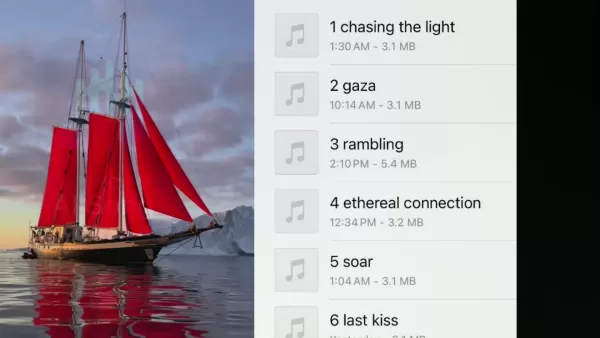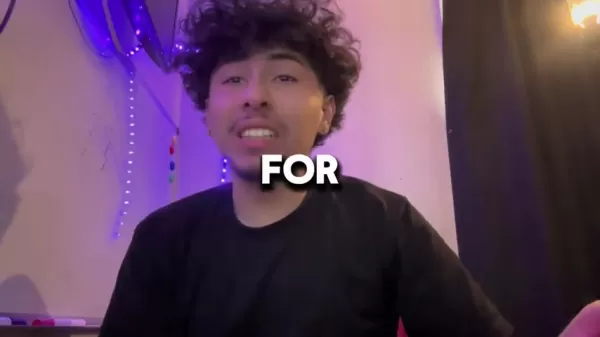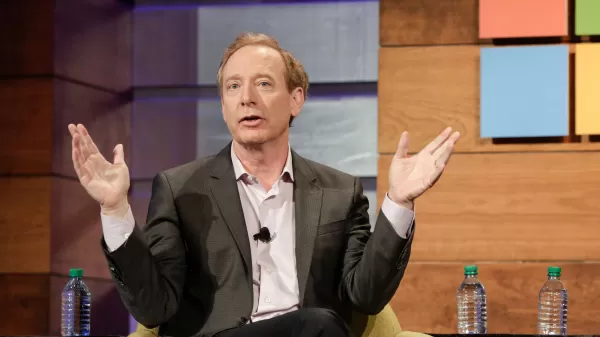AI-Powered Songwriting Unlocks Inner Bard, Raises Implications
The world of music is undergoing a fascinating transformation as artificial intelligence (AI) steps into the realm of songwriting. No longer just a sci-fi concept, AI songwriting is here, challenging our traditional views on creativity, authorship, and artistic expression. Let's explore how AI is crafting songs, diving into the lyrical depth, potential uses, and the profound questions it raises about human creativity. How will these technologies reshape music, and what role will human artists play in the future? Let's delve deeper.
The Rise of AI Songwriting
What is AI Songwriting?
At its heart, AI songwriting uses sophisticated algorithms to generate both music and lyrics. These systems are trained on extensive datasets of existing songs, learning the intricacies of melody, harmony, rhythm, and the nuances of lyrical themes. Once trained, AI can create original compositions or assist human songwriters throughout the creative process. It leverages machine learning to analyze and generate new content tailored to specific styles, genres, or emotional tones. This isn't just about piecing together existing elements; AI is actively composing fresh music based on its understanding of musical principles and emotional expression. Free from human limitations like biases, creative blocks, or time constraints, AI offers a unique toolset that's reshaping how we create, consume, and perceive music.
Lyrical Analysis: AI's Poetic Prowess
The Spectrum of AI Lyrics: From Meaningful to Nonsensical
AI's foray into lyrics is perhaps its most intriguing aspect. The quality varies, but AI can produce lyrics that are surprisingly deep and emotionally resonant, or, at times, delightfully nonsensical, challenging our expectations. From heartfelt ballads to fiery rap verses, AI can weave various styles, employing poetic devices like metaphor, simile, and alliteration. It can tell stories, delve into themes of love and loss, and even comment on social issues. Yet, AI lyrics can also be a jumble of unrelated phrases, sparking a debate about meaning and coherence in art. This unpredictability forces us to question our understanding of artistic expression and the essence of creativity itself.
Thai Ta - An AI Songwriter

Thai Ta stands out as an AI songwriter exploring diverse themes through its app, featuring six unique AI-generated songs. Let's take a closer look at a few of these compositions:
Departure (February 20, 2022) captures the spirit of adventure and the unknown with lines like:
Take flight, my friend / Go on your adventure / Before our wings get tired
You might need a moment or two / To reflect, or perhaps
Off you go, towards the unknown / Into your own limitless making / Take heart, my friend / And soar!
Gaza 40,000 (August 10, 2024) tackles the somber topic of conflict, with poignant lyrics:
How can it be possible? / 40,000 / I had to Google. Yup, there it is.
Those who survive, where would they go? / Where CAN they go?! / Inhumanity / You don't see them anymore
Do we care? / Do we dare to say that we care? / 40,000. Hmm...
In Love (July 1999) evokes the intensity of connection through evocative words:
Something in the eyes / Intangible / A heartbeat
Spreads through / something seems to form / from thin air / that makes sense / of your life on pause/ this is meant to be!
Using AI Songwriting Tools: A Creative Partnership
How to Get Started: Tools and Platforms
Diving into AI songwriting can be as easy as using the AI Song App, but numerous online platforms and software tools are also available. These platforms typically feature user-friendly interfaces where you can set prompts, choose genres, and customize parameters to guide the AI's creative journey. Some popular tools include:
- Amper Music
- Jukebox (OpenAI)
- AIVA
Keep an eye out for emerging platforms and apps, which often offer free trials or basic free plans, making it easy to experiment. It's crucial to compare options as each brings unique features and capabilities to the table.
Prompt Engineering: Guiding the AI's Creativity
The success of AI-generated songs largely depends on the quality of your prompts. Crafting clear, specific, and imaginative prompts can lead to more interesting and relevant outcomes. Consider these tips:
- Genre Selection: Specify the desired genre (e.g., pop, rock, classical, electronic).
- Mood and Emotion: Indicate the intended mood or emotion (e.g., happy, sad, angry, hopeful).
- Thematic Content: Provide a brief description of the song's theme or subject matter.
- Structure and Form: Define the song's structure (e.g., verse-chorus, ABAB rhyme scheme).
Don't be afraid to think outside the box! Experimenting with unconventional prompts can push the AI to generate truly unique and innovative sounds.
AI Song App Pricing
Costs of AI Compositions
While specific pricing isn't always mentioned, the file sizes of songs like 3.1MB or 5.4MB suggest that the service might be quite affordable. Depending on the app you choose, pricing can vary from monthly subscriptions with unlimited generations to pay-per-generation models. Many apps offer a free trial, allowing users to explore AI songwriting without immediate financial commitment.
AI Song App: Pros and Cons
Pros
- Provides a source of inspiration.
- Efficient to use.
- Offers a range of musical styles and genres.
- Reduces the costs associated with traditional songwriting.
Cons
- Can be challenging to create songs with emotional depth.
- Limited lyrical context can occur.
- Ethical issues surrounding copyright and artistic authenticity.
- Risk of homogenization in music creation.
AI Song App Core Features
AI Song Possibilities
AI songwriting tools offer a variety of exciting features, including:
- Songwriting
- Unique Lyric Generation
- Instrumental Composition
AI Song App Use Cases
Potential User Scenarios
AI songwriting tools cater to a wide range of creative needs:
- Songwriter's Block: If you're stuck in the creative process, an AI songwriting app can generate ideas for both lyrics and instrumentals, helping you break through.
- Game and Multimedia Developers: These tools can create dynamic soundtracks that adapt to game narratives or multimedia projects, saving time and resources.
- Music Education: AI can assist students in learning composition and music theory by providing examples and feedback.
- Content Creators: Podcasters and YouTubers can use AI to generate royalty-free background music, enhancing their production value.
- AI Album: With advancing technology, creating entire albums with AI assistance is becoming more common.
Frequently Asked Questions about AI Songwriting
What are the limitations of AI songwriting?
While AI songwriting is evolving, it still faces challenges. AI-generated music can sometimes lack the emotional depth and nuance of human compositions. It may struggle with complex musical structures and unconventional expressions. Generating cohesive, contextually relevant lyrics remains a hurdle, often resulting in nonsensical or repetitive content.
Is AI songwriting going to replace human artists?
It's unlikely that AI will completely replace human artists. Instead, AI is best seen as a tool to augment human creativity, offering new avenues for artistic expression. It can help artists overcome creative blocks, explore new ideas, and streamline the production process.
What are the ethical concerns surrounding AI songwriting?
Major ethical issues include copyright and ownership, which are not yet clearly defined. There's also the potential for AI to mimic existing artists' styles, raising questions about plagiarism and artistic integrity. It's crucial to consider the impact AI might have on human artists and the broader music industry.
Related Questions
Is AI art theft?
The debate over AI art and copyright infringement is ongoing. Training AI models requires vast datasets of copyrighted images, which can lead to new creations based on learned content. Determining whether AI-generated art uses copyrighted material or just mimics a style is challenging. Current U.S. copyright law focuses on preventing direct copying rather than style imitation, placing responsibility on the user rather than the technology or its developers. Artists face challenges if their work is used without permission. Defenses like the Fair Use Doctrine and De Minimis Copying are available, but new legislation may be needed to balance innovation with fairness for creators.
Related article
 AI Music Tools: Promises, Challenges, and a Real Rap Experiment
Artificial intelligence is transforming creative industries, including music. Advanced AI platforms make songwriting accessible, enabling anyone without deep expertise to craft and refine tracks. This
AI Music Tools: Promises, Challenges, and a Real Rap Experiment
Artificial intelligence is transforming creative industries, including music. Advanced AI platforms make songwriting accessible, enabling anyone without deep expertise to craft and refine tracks. This
 Google Claims Imagen 3 AI Image Generator Surpasses DALL-E 3: Here's How to Test It
Choosing the right AI chatbot can feel overwhelming with so many options out there. Google DeepMind stepped in to help, conducting a thorough comparison of top chatbots. Surprisingly, it was an image generator that caught everyone's eye—Imagen 3.I recently gave Google's ImageFX AI image generator a
Google Claims Imagen 3 AI Image Generator Surpasses DALL-E 3: Here's How to Test It
Choosing the right AI chatbot can feel overwhelming with so many options out there. Google DeepMind stepped in to help, conducting a thorough comparison of top chatbots. Surprisingly, it was an image generator that caught everyone's eye—Imagen 3.I recently gave Google's ImageFX AI image generator a
 Microsoft staff barred from using DeepSeek app by company order, president confirms
Microsoft prohibits its employees from using DeepSeek over data security and content moderation concerns, according to Brad Smith, Microsoft's vice chairman and president, during a Senate hearing."Microsoft restricts employee access to DeepSeek's app
Comments (4)
0/200
Microsoft staff barred from using DeepSeek app by company order, president confirms
Microsoft prohibits its employees from using DeepSeek over data security and content moderation concerns, according to Brad Smith, Microsoft's vice chairman and president, during a Senate hearing."Microsoft restricts employee access to DeepSeek's app
Comments (4)
0/200
![CharlesHernández]() CharlesHernández
CharlesHernández
 August 21, 2025 at 1:01:19 PM EDT
August 21, 2025 at 1:01:19 PM EDT
This AI songwriting stuff is wild! It's like having a digital Shakespeare jamming with you. But honestly, will it make music feel less human? 🤔 Still, super cool to see tech hitting these creative notes!


 0
0
![RoyMitchell]() RoyMitchell
RoyMitchell
 August 20, 2025 at 1:01:18 AM EDT
August 20, 2025 at 1:01:18 AM EDT
This AI songwriting stuff is wild! It’s like having a digital Shakespeare jamming with you. But honestly, are we ready for bots to outdo human bards? 🤔 Kinda scary to think about.


 0
0
![ArthurYoung]() ArthurYoung
ArthurYoung
 August 12, 2025 at 7:00:59 AM EDT
August 12, 2025 at 7:00:59 AM EDT
This AI songwriting stuff is wild! 🎵 It’s like having a digital muse that never sleeps. But honestly, I’m torn—will it make music more accessible or just flood the charts with soulless tunes?


 0
0
![KennethMartin]() KennethMartin
KennethMartin
 August 10, 2025 at 5:00:59 PM EDT
August 10, 2025 at 5:00:59 PM EDT
AI songwriting sounds wild! Like, are we gonna have robots dropping better love ballads than humans soon? 😄 Kinda cool but also low-key spooky thinking about machines stealing the poet's vibe.


 0
0
The world of music is undergoing a fascinating transformation as artificial intelligence (AI) steps into the realm of songwriting. No longer just a sci-fi concept, AI songwriting is here, challenging our traditional views on creativity, authorship, and artistic expression. Let's explore how AI is crafting songs, diving into the lyrical depth, potential uses, and the profound questions it raises about human creativity. How will these technologies reshape music, and what role will human artists play in the future? Let's delve deeper.
The Rise of AI Songwriting
What is AI Songwriting?
At its heart, AI songwriting uses sophisticated algorithms to generate both music and lyrics. These systems are trained on extensive datasets of existing songs, learning the intricacies of melody, harmony, rhythm, and the nuances of lyrical themes. Once trained, AI can create original compositions or assist human songwriters throughout the creative process. It leverages machine learning to analyze and generate new content tailored to specific styles, genres, or emotional tones. This isn't just about piecing together existing elements; AI is actively composing fresh music based on its understanding of musical principles and emotional expression. Free from human limitations like biases, creative blocks, or time constraints, AI offers a unique toolset that's reshaping how we create, consume, and perceive music.
Lyrical Analysis: AI's Poetic Prowess
The Spectrum of AI Lyrics: From Meaningful to Nonsensical
AI's foray into lyrics is perhaps its most intriguing aspect. The quality varies, but AI can produce lyrics that are surprisingly deep and emotionally resonant, or, at times, delightfully nonsensical, challenging our expectations. From heartfelt ballads to fiery rap verses, AI can weave various styles, employing poetic devices like metaphor, simile, and alliteration. It can tell stories, delve into themes of love and loss, and even comment on social issues. Yet, AI lyrics can also be a jumble of unrelated phrases, sparking a debate about meaning and coherence in art. This unpredictability forces us to question our understanding of artistic expression and the essence of creativity itself.
Thai Ta - An AI Songwriter

Thai Ta stands out as an AI songwriter exploring diverse themes through its app, featuring six unique AI-generated songs. Let's take a closer look at a few of these compositions:
Departure (February 20, 2022) captures the spirit of adventure and the unknown with lines like:
Take flight, my friend / Go on your adventure / Before our wings get tired
You might need a moment or two / To reflect, or perhaps
Off you go, towards the unknown / Into your own limitless making / Take heart, my friend / And soar!
Gaza 40,000 (August 10, 2024) tackles the somber topic of conflict, with poignant lyrics:
How can it be possible? / 40,000 / I had to Google. Yup, there it is.
Those who survive, where would they go? / Where CAN they go?! / Inhumanity / You don't see them anymore
Do we care? / Do we dare to say that we care? / 40,000. Hmm...
In Love (July 1999) evokes the intensity of connection through evocative words:
Something in the eyes / Intangible / A heartbeat
Spreads through / something seems to form / from thin air / that makes sense / of your life on pause/ this is meant to be!
Using AI Songwriting Tools: A Creative Partnership
How to Get Started: Tools and Platforms
Diving into AI songwriting can be as easy as using the AI Song App, but numerous online platforms and software tools are also available. These platforms typically feature user-friendly interfaces where you can set prompts, choose genres, and customize parameters to guide the AI's creative journey. Some popular tools include:
- Amper Music
- Jukebox (OpenAI)
- AIVA
Keep an eye out for emerging platforms and apps, which often offer free trials or basic free plans, making it easy to experiment. It's crucial to compare options as each brings unique features and capabilities to the table.
Prompt Engineering: Guiding the AI's Creativity
The success of AI-generated songs largely depends on the quality of your prompts. Crafting clear, specific, and imaginative prompts can lead to more interesting and relevant outcomes. Consider these tips:
- Genre Selection: Specify the desired genre (e.g., pop, rock, classical, electronic).
- Mood and Emotion: Indicate the intended mood or emotion (e.g., happy, sad, angry, hopeful).
- Thematic Content: Provide a brief description of the song's theme or subject matter.
- Structure and Form: Define the song's structure (e.g., verse-chorus, ABAB rhyme scheme).
Don't be afraid to think outside the box! Experimenting with unconventional prompts can push the AI to generate truly unique and innovative sounds.
AI Song App Pricing
Costs of AI Compositions
While specific pricing isn't always mentioned, the file sizes of songs like 3.1MB or 5.4MB suggest that the service might be quite affordable. Depending on the app you choose, pricing can vary from monthly subscriptions with unlimited generations to pay-per-generation models. Many apps offer a free trial, allowing users to explore AI songwriting without immediate financial commitment.
AI Song App: Pros and Cons
Pros
- Provides a source of inspiration.
- Efficient to use.
- Offers a range of musical styles and genres.
- Reduces the costs associated with traditional songwriting.
Cons
- Can be challenging to create songs with emotional depth.
- Limited lyrical context can occur.
- Ethical issues surrounding copyright and artistic authenticity.
- Risk of homogenization in music creation.
AI Song App Core Features
AI Song Possibilities
AI songwriting tools offer a variety of exciting features, including:
- Songwriting
- Unique Lyric Generation
- Instrumental Composition
AI Song App Use Cases
Potential User Scenarios
AI songwriting tools cater to a wide range of creative needs:
- Songwriter's Block: If you're stuck in the creative process, an AI songwriting app can generate ideas for both lyrics and instrumentals, helping you break through.
- Game and Multimedia Developers: These tools can create dynamic soundtracks that adapt to game narratives or multimedia projects, saving time and resources.
- Music Education: AI can assist students in learning composition and music theory by providing examples and feedback.
- Content Creators: Podcasters and YouTubers can use AI to generate royalty-free background music, enhancing their production value.
- AI Album: With advancing technology, creating entire albums with AI assistance is becoming more common.
Frequently Asked Questions about AI Songwriting
What are the limitations of AI songwriting?
While AI songwriting is evolving, it still faces challenges. AI-generated music can sometimes lack the emotional depth and nuance of human compositions. It may struggle with complex musical structures and unconventional expressions. Generating cohesive, contextually relevant lyrics remains a hurdle, often resulting in nonsensical or repetitive content.
Is AI songwriting going to replace human artists?
It's unlikely that AI will completely replace human artists. Instead, AI is best seen as a tool to augment human creativity, offering new avenues for artistic expression. It can help artists overcome creative blocks, explore new ideas, and streamline the production process.
What are the ethical concerns surrounding AI songwriting?
Major ethical issues include copyright and ownership, which are not yet clearly defined. There's also the potential for AI to mimic existing artists' styles, raising questions about plagiarism and artistic integrity. It's crucial to consider the impact AI might have on human artists and the broader music industry.
Related Questions
Is AI art theft?
The debate over AI art and copyright infringement is ongoing. Training AI models requires vast datasets of copyrighted images, which can lead to new creations based on learned content. Determining whether AI-generated art uses copyrighted material or just mimics a style is challenging. Current U.S. copyright law focuses on preventing direct copying rather than style imitation, placing responsibility on the user rather than the technology or its developers. Artists face challenges if their work is used without permission. Defenses like the Fair Use Doctrine and De Minimis Copying are available, but new legislation may be needed to balance innovation with fairness for creators.
 AI Music Tools: Promises, Challenges, and a Real Rap Experiment
Artificial intelligence is transforming creative industries, including music. Advanced AI platforms make songwriting accessible, enabling anyone without deep expertise to craft and refine tracks. This
AI Music Tools: Promises, Challenges, and a Real Rap Experiment
Artificial intelligence is transforming creative industries, including music. Advanced AI platforms make songwriting accessible, enabling anyone without deep expertise to craft and refine tracks. This
 Google Claims Imagen 3 AI Image Generator Surpasses DALL-E 3: Here's How to Test It
Choosing the right AI chatbot can feel overwhelming with so many options out there. Google DeepMind stepped in to help, conducting a thorough comparison of top chatbots. Surprisingly, it was an image generator that caught everyone's eye—Imagen 3.I recently gave Google's ImageFX AI image generator a
Google Claims Imagen 3 AI Image Generator Surpasses DALL-E 3: Here's How to Test It
Choosing the right AI chatbot can feel overwhelming with so many options out there. Google DeepMind stepped in to help, conducting a thorough comparison of top chatbots. Surprisingly, it was an image generator that caught everyone's eye—Imagen 3.I recently gave Google's ImageFX AI image generator a
 Microsoft staff barred from using DeepSeek app by company order, president confirms
Microsoft prohibits its employees from using DeepSeek over data security and content moderation concerns, according to Brad Smith, Microsoft's vice chairman and president, during a Senate hearing."Microsoft restricts employee access to DeepSeek's app
Microsoft staff barred from using DeepSeek app by company order, president confirms
Microsoft prohibits its employees from using DeepSeek over data security and content moderation concerns, according to Brad Smith, Microsoft's vice chairman and president, during a Senate hearing."Microsoft restricts employee access to DeepSeek's app
 August 21, 2025 at 1:01:19 PM EDT
August 21, 2025 at 1:01:19 PM EDT
This AI songwriting stuff is wild! It's like having a digital Shakespeare jamming with you. But honestly, will it make music feel less human? 🤔 Still, super cool to see tech hitting these creative notes!


 0
0
 August 20, 2025 at 1:01:18 AM EDT
August 20, 2025 at 1:01:18 AM EDT
This AI songwriting stuff is wild! It’s like having a digital Shakespeare jamming with you. But honestly, are we ready for bots to outdo human bards? 🤔 Kinda scary to think about.


 0
0
 August 12, 2025 at 7:00:59 AM EDT
August 12, 2025 at 7:00:59 AM EDT
This AI songwriting stuff is wild! 🎵 It’s like having a digital muse that never sleeps. But honestly, I’m torn—will it make music more accessible or just flood the charts with soulless tunes?


 0
0
 August 10, 2025 at 5:00:59 PM EDT
August 10, 2025 at 5:00:59 PM EDT
AI songwriting sounds wild! Like, are we gonna have robots dropping better love ballads than humans soon? 😄 Kinda cool but also low-key spooky thinking about machines stealing the poet's vibe.


 0
0





























